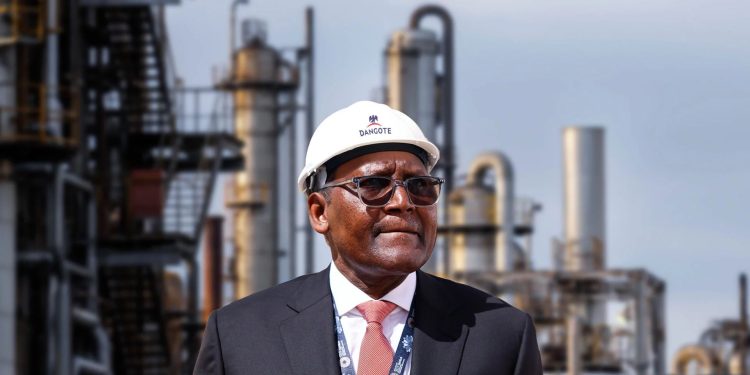Alhaji Aliko Dangote, President of the Dangote Group, has urged President Bola Tinubu to include refined petroleum products such as petrol and diesel in the list of banned imports under the ‘Nigeria First’ policy. However, the proposal was unanimously rejected by oil marketers and several industry analysts on Sunday.
Speaking at the Global Commodity Insights Conference on West African Refined Fuel Markets in Lagos, jointly organized by the Nigerian Midstream and Downstream Petroleum Regulatory Authority (NMDPRA) and S&P Global Insights, Dangote argued that continued fuel importation undermines local refining capacity and deters investments in Nigeria’s oil and gas sector.
“The importation of fuel into Nigeria is killing local refining and discouraging further investments—not just in refining, but in the broader economy,” Dangote stated.
The Nigeria First policy, introduced by President Tinubu in May 2025, bars government agencies from procuring goods or services that are readily available within Nigeria, unless they obtain a waiver from the Bureau of Public Procurement (BPP).
While Dangote’s call aligns with the policy’s goal of boosting local production and economic self-reliance, oil marketers and energy experts quickly dismissed the idea, citing: Inadequate domestic refining capacity, Risk of supply shortages, Lack of pricing competitiveness, Need for market liberalisation over protectionism.
Analysts warn that imposing a ban on refined fuel imports could lead to price spikes, supply chain disruptions, and consumer backlash, especially as Dangote Refinery ramps up operations and seeks market dominance.
Energy economist Dr. Bala Zaka described the proposal as “premature,” saying:
“Until we have multiple functioning refineries operating at full capacity, a ban on fuel imports will only create new problems.”
The Dangote Refinery, commissioned in 2023, is Africa’s largest single-train refinery, with a reported capacity of 650,000 barrels per day. However, it has only recently started supplying the Nigerian market and still depends on a complex supply chain to achieve full output.















